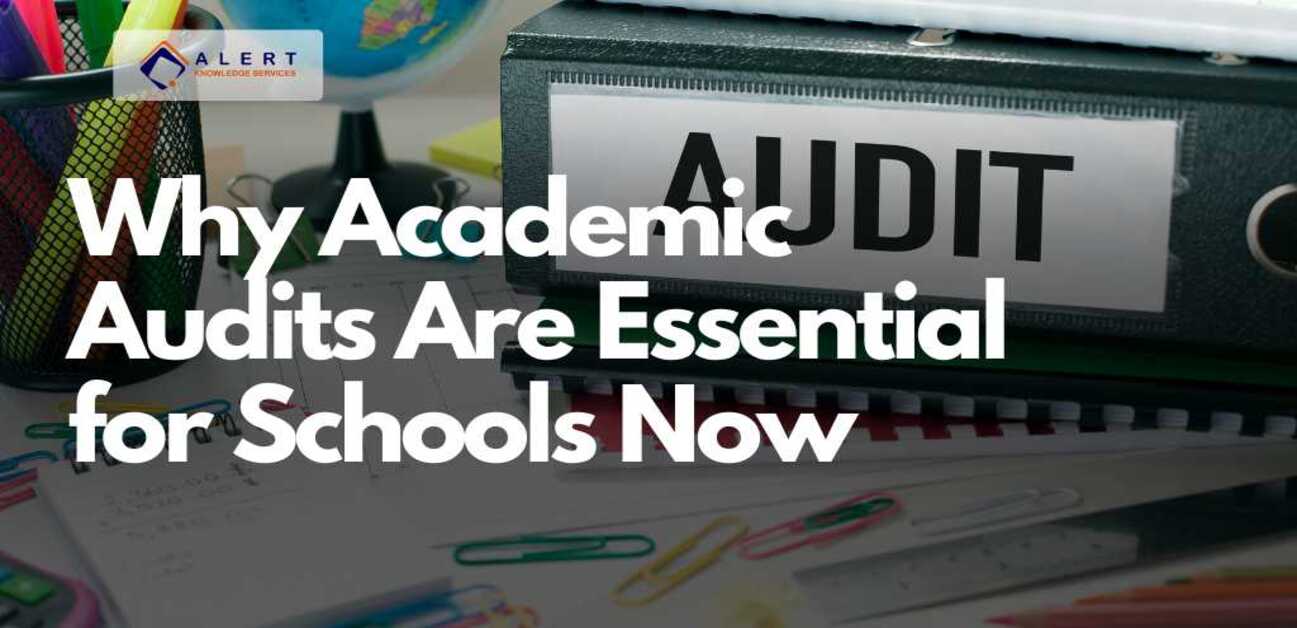Why Academic Audits Are Essential for Schools Now
- 2 Minutes read
- Web Admin

In a rapidly changing educational landscape, the need for academic audits in schools has become more critical than ever. These audits provide a structured framework for assessing and improving the quality of education, ensuring that students receive the best possible learning experiences. In this blog, we’ll explore why academic audits are essential for schools today, what they entail, and the many benefits they offer.
The Need for Academic Audits in Schools
Quality Assurance: Academic audits are essential for schools to maintain and enhance the quality of education. They help schools identify areas that need improvement and set benchmarks for continuous enhancement.
Accountability: Academic audits hold schools accountable for their educational practices. This accountability is crucial for maintaining the trust of students, parents, and the community.
Compliance: Schools must adhere to various regulations, standards, and curricular requirements. Academic audits help ensure that schools are in compliance with these essential guidelines.

To conduct a meaningful academic audit, several key requirements must be met:
Clear Objectives: Define the objectives of the audit, such as assessing curriculum effectiveness, teaching methods, student performance, and infrastructure quality.
Qualified Auditors: Employ experienced and qualified auditors who understand the educational sector and audit methodologies.
Data Collection: Gather comprehensive data on student achievement, teaching practices, resources, and other relevant factors.
Stakeholder Involvement: Involve students, teachers, parents, and administrators in the audit process to ensure a well-rounded perspective.

Improved Learning Outcomes: Academic audits help identify areas for improvement in curriculum, teaching methods, and assessment strategies, leading to enhanced learning outcomes.
Data-Driven Decisions: Audits provide data-driven insights, enabling schools to make informed decisions and allocate resources more effectively.
Professional Development: Teachers and staff can benefit from targeted professional development based on audit findings, leading to a more skilled and motivated workforce.
Enhanced School Reputation: A successful audit demonstrates a commitment to quality education, boosting the school’s reputation and attracting students and parents.

A comprehensive academic audit should cover various aspects of a school’s operations:
Curriculum Evaluation: Assess the relevance and effectiveness of the curriculum in meeting educational goals.
Teaching and Learning Practices: Examine teaching methods, teacher-student interactions, and the use of technology for instruction.
Student Assessment: Evaluate assessment methods, grading practices, and the feedback loop for student progress.
Infrastructure and Resources: Audit the quality and accessibility of physical and technological resources.
Parent and Community Engagement: Assess the level of involvement and communication with parents and the local community.
In conclusion, academic audits are indispensable for schools in today’s educational environment. They ensure quality, accountability, and compliance while fostering continuous improvement. To stay competitive and provide the best educational experience for students, schools must embrace the practice of academic audits, always striving for excellence in teaching and learning.












